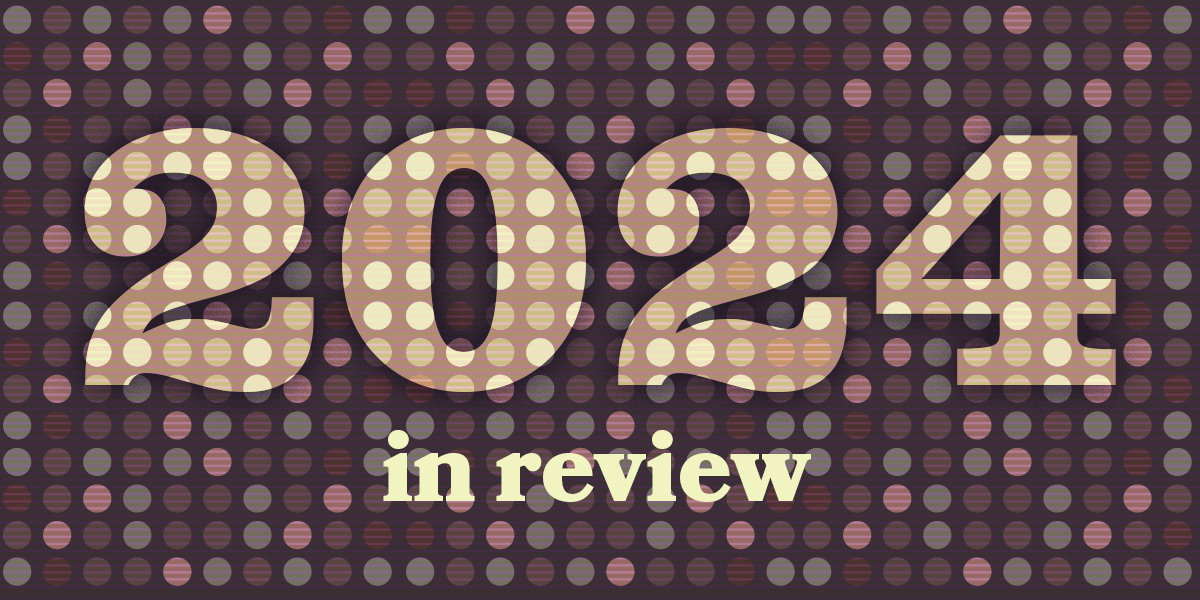Fighting Online ID Mandates: 2024 In Review
This year, nearly half of U.S. states passed laws imposing age verification requirements on online platforms. EFF has opposed these efforts because they censor the internet and burden access to online speech. Though age verification mandates are often touted as “online safety” measures for kids, the laws actually do more harm than good. They undermine the fundamental speech rights of adults and young people alike, create new barriers to internet access, and put at risk all internet users’ privacy, anonymity, and security.
Age verification bills generally require online services to verify all users’ ages—often through invasive tools like ID checks, biometric scans, and other dubious “age estimation” methods—before granting them access to certain online content or services. Some state bills mandate the age verification explicitly, including Texas’s H.B. 1181, Florida’s H.B. 3, and Indiana’s S.B. 17. Other state bills claim not to require age verification, but still threaten platforms with liability for showing certain content or features to minor users. These bills—including Mississippi’s H.B. 1126, Ohio’s Parental Notification by Social Media Operators Act, and the federal Kids Online Safety Act—raise the question: how are platforms to know which users are minors without imposing age verification?
EFF’s answer: they can’t. We call these bills “implicit age verification mandates” because, though they might expressly deny requiring age verification, they still force platforms to either impose age verification measures or, worse, to censor whatever content or features deemed “harmful to minors” for all users—not just young people—in order to avoid liability.
Age verification requirements are the wrong approach to protecting young people online. No one should have to hand over their most sensitive personal information or submit to invasive biometric surveillance just to access lawful online speech.
EFF’s Work Opposing State Age Verification Bills
Last year, we saw a slew of dangerous social media regulations for young people introduced across the country. This year, the flood of ill-advised bills grew larger. As of December 2024, nearly every U.S. state legislature has introduced at least one age verification bill, and nearly half the states have passed at least one of these proposals into law.
Courts agree with our position on age verification mandates. Across the country, courts have repeatedly and consistently held these so-called “child safety” bills unconstitutional, confirming that it is nearly impossible to impose online age-verification requirements without violating internet users’ First Amendment rights. In 2024, federal district courts in Ohio, Indiana, Utah, and Mississippi enjoined those states’ age verification mandates. The decisions underscore how these laws, in addition to being unconstitutional, are also bad policy. Instead of seeking to censor the internet or block young people from it, lawmakers seeking to help young people should focus on advancing legislation that solves the most pressing privacy and competition problems for all users—without restricting their speech.
Here’s a quick review of EFF’s work this year to fend off state age verification mandates and protect digital rights in the face of this legislative onslaught.
California
In January, we submitted public comments opposing an especially vague and poorly written proposal: California Ballot Initiative 23-0035, which would allow plaintiffs to sue online information providers for damages of up to $1 million if they violate their “responsibility of ordinary care and skill to a child.” We pointed out that this initiative’s vague standard, combined with extraordinarily large statutory damages, will severely limit access to important online discussions for both minors and adults, and cause platforms to censor user content and impose mandatory age verification in order to avoid this legal risk. Thankfully, this measure did not make it onto the 2024 ballot.
In February, we filed a friend-of-the-court brief arguing that California’s Age Appropriate Design Code (AADC) violated the First Amendment. Our brief asked the Ninth Circuit Court of Appeals to rule narrowly that the AADC’s age estimation scheme and vague description of “harmful content” renders the entire law unconstitutional, even though the bill also contained several privacy provisions that, stripped of the unconstitutional censorship provisions, could otherwise survive. In its decision in August, the Ninth Circuit confirmed that parts of the AADC likely violate the First Amendment and provided a helpful roadmap to legislatures for how to write privacy first laws that can survive constitutional challenges. However, the court missed an opportunity to strike down the AADC’s age-verification provision specifically.
Later in the year, we also filed a letter to California lawmakers opposing A.B. 3080, a proposed state bill that would have required internet users to show their ID in order to look at sexually explicit content. Our letter explained that bills that allow politicians to define what “sexually explicit” content is and enact punishments for those who engage with it are inherently censorship bills—and they never stop with minors. We declared victory in September when the bill failed to get passed by the legislature.
New York
Similarly, after New York passed the Stop Addictive Feeds Exploitation (SAFE) for Kids Act earlier this year, we filed comments urging the state attorney general (who is responsible for writing the rules to implement the bill) to recognize that that age verification requirements are incompatible with privacy and free expression rights for everyone. We also noted that none of the many methods of age verification listed in the attorney general’s call for comments is both privacy-protective and entirely accurate, as various experts have reported.
Texas
We also took the fight to Texas, which passed a law requiring all Texas internet users, including adults, to submit to invasive age verification measures on every website deemed by the state to be at least one-third composed of sexual material. After a federal district court put the law on hold, the Fifth Circuit reversed and let the law take effect—creating a split among federal circuit courts on the constitutionality of age verification mandates. In May, we filed an amicus brief urging the U.S. Supreme Court to grant review of the Fifth Circuit’s decision and to ultimately overturn the Texas law on First Amendment grounds.
In September, after the Supreme Court accepted the Texas case, we filed another amicus brief on the merits. We pointed out that the Fifth Circuit’s flawed ruling diverged from decades of legal precedent recognizing, correctly, that online ID mandates impose greater burdens on our First Amendment rights than in-person age checks. We explained that there is nothing about this Texas law or advances in technology that would lessen the harms that online age verification mandates impose on adults wishing to exercise their constitutional rights. The Supreme Court has set this case, Free Speech Coalition v. Paxton, for oral argument in February 2025.
Mississippi
Finally, we supported the First Amendment challenge to Mississippi’s age verification mandate, H.B. 1126, by filing amicus briefs both in the federal district court and on appeal to the Fifth Circuit. Mississippi’s extraordinarily broad law requires social media services to verify the ages of all users, to obtain parental consent for any minor users, and to block minor users from exposure to materials deemed “harmful” by state officials.
In our June brief for the district court, we once again explained that online age verification laws are fundamentally different and more burdensome than laws requiring adults to show their IDs in physical spaces, and impose significant barriers on adults’ ability to access lawful speech online. The district court agreed with us, issuing a decision that enjoined the Mississippi law and heavily cited our amicus brief.
Upon Mississippi’s appeal to the Fifth Circuit, we filed another amicus brief—this time highlighting H.B. 1126’s dangerous impact on young people’s free expression. After all, minors enjoy the same First Amendment right as adults to access and engage in protected speech online, and online spaces are diverse and important spaces where minors can explore their identities—whether by creating and sharing art, practicing religion, or engaging in politics—and seek critical resources and support for the very same harms these bills claim to address. In our brief, we urged the court to recognize that age-verification regimes like Mississippi’s place unnecessary and unconstitutional barriers between young people and these online spaces that they rely on for vibrant self-expression and crucial support.
Looking Ahead
As 2024 comes to a close, the fight against online age verification is far from over. As the state laws continue to proliferate, so too do the legal challenges—several of which are already on file.
EFF’s work continues, too. As we move forward in state legislatures and courts, at the federal level here in the United States, and all over the world, we will continue to advocate for policies that protect the free speech, privacy, and security of all users—adults and young people alike. And, with your help, we will continue to fight for the future of the open internet, ensuring that all users—especially the youth—can access the digital world without fear of surveillance or unnecessary restrictions.
This article is part of our Year in Review series. Read other articles about the fight for digital rights in 2024.



